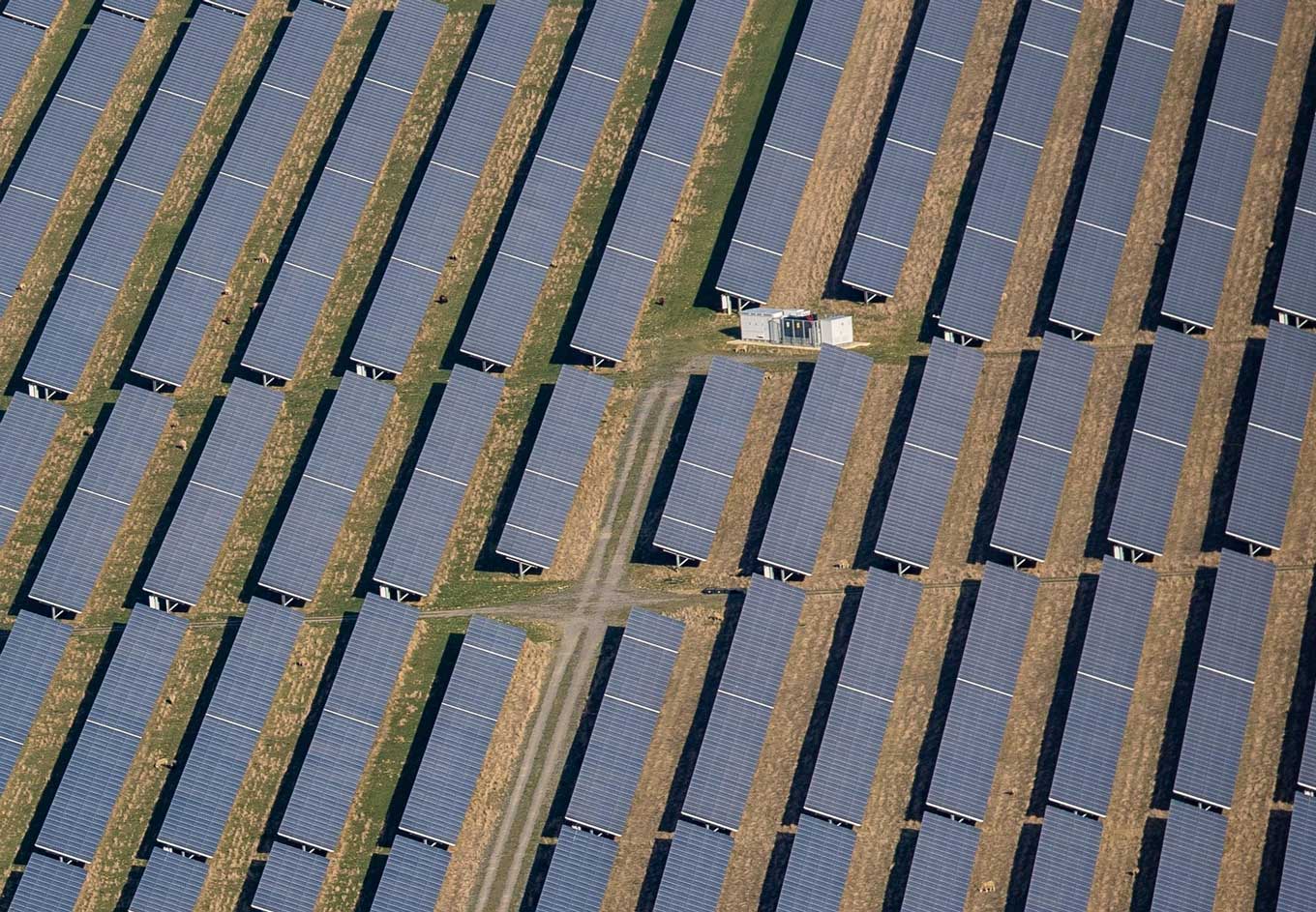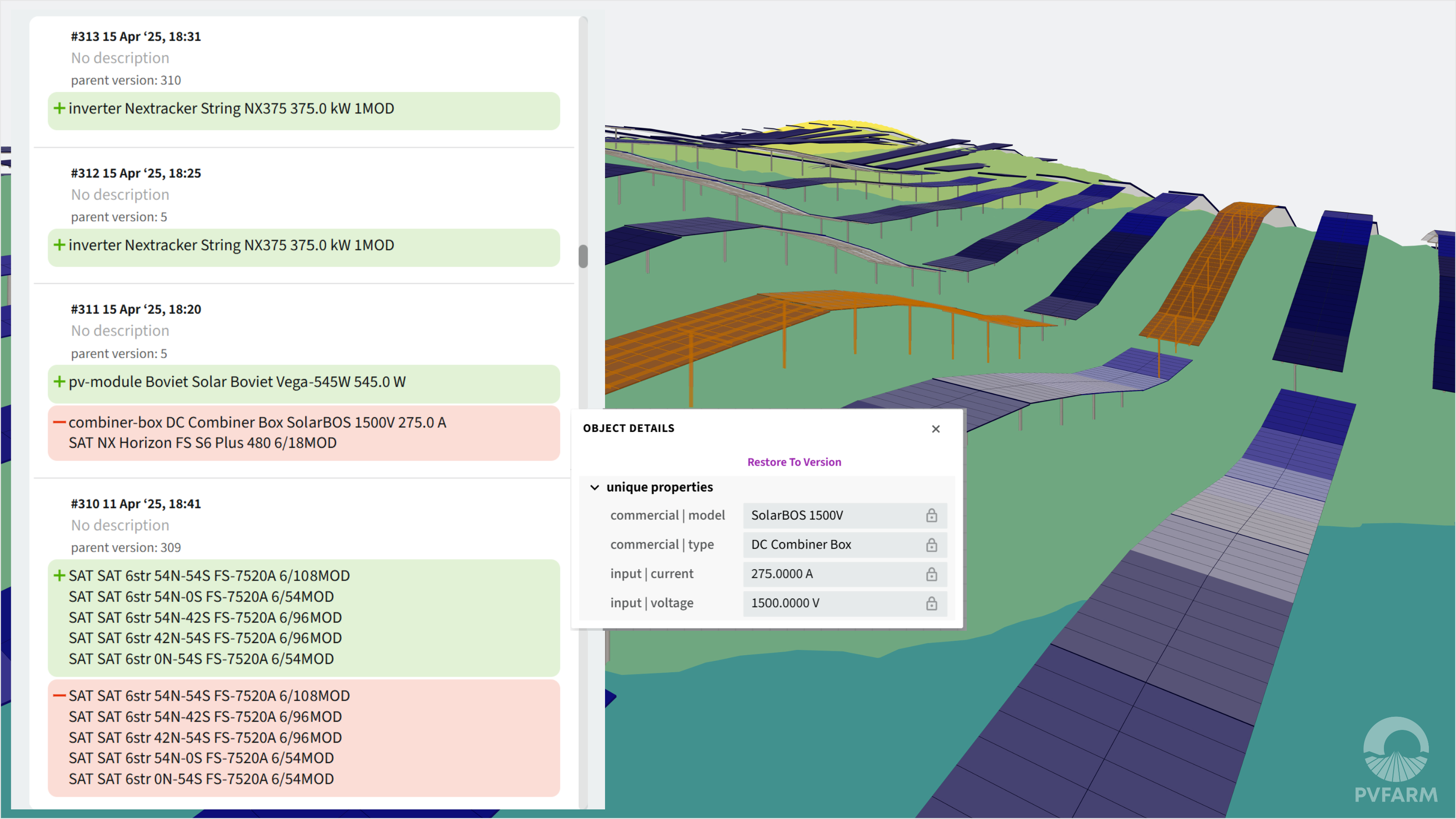How PV Analysis Software Reduces Risk in Early-Stage Projects

Reducing Risk Through Smarter PV Analysis
This is why effective PV analysis software is critical for the solar industry. By combining sophisticated simulation, proprietary algorithms and real-time multidisciplinary workflows, advanced software platforms can reduce risks, accelerate decision-making and, ultimately, give teams the confidence they need to move projects forward with precision.
At PVFARM, our mission is to provide the solar industry with a platform that does more than automate layouts. We deliver a solution that tackles the real-world complexities of photovoltaic system design - helping companies streamline workflows, optimize early-stage decisions and build projects that are efficient, bankable and future-ready.
Managing Uncertainty in Early-Stage Solar Design
Early-stage solar projects face a unique challenge: the need to produce detailed, reliable designs when there are still many unknowns. Land characteristics, grid capacity, permitting requirements, and financial models are still being clarified at this stage, yet, investors, clients and utility companies expect accurate answers.
Some of the risks at this stage include:
- Site Misalignment: Choosing land with unsuitable slope, soil, or hydrology that increases costs later.
- Over-optimistic Yield Forecasts: Models that fail to account for shading, grading, or grid limitations.
- Inefficient Layouts: Designs that look good on paper but result in higher LCOE (Levelized Cost of Energy).
- Workflow Delays: Passing files between fragmented tools, slowing down decision-making.
- Cost Overruns: Misjudging grading, pile depth, or electrical losses can erode profitability.
Left unaddressed, these risks can erode a project’s ROI, delay approvals and, in some cases, even determine whether a solar farm project moves forward at all.
How PV Analysis Software Mitigates These Risk
Modern PV analysis software reduces these risks by creating a data-driven, integrated and highly efficient design process. Unlike legacy tools, which function as siloed apps for civil, electrical or financial modeling, PVFARM provides an online platform that integrates all these disciplines in real time.
Here’s how the right software reduces risk in practice:
1. Data-Driven Site Planning
Using proprietary algorithms and detailed terrain models, PV analysis software evaluates land suitability before major investments are made. Instead of waiting weeks for manual grading studies, teams can model multiple site options instantly, and identify any red flags such as slopes, wetlands or infrastructure gaps.
This enables developers and EPCs to make confident land acquisition decisions, reducing the risk of costly surprises later.
2. Real-Time Multidisciplinary Simulation
Most tools generate static outputs. However, PVFARM allows users to test how civil, electrical and energy factors interact in real time. For example, adjusting a grading strategy can immediately show its impact on energy production, DC/AC conversion and grid stability.
This real-time integration minimizes design iterations, saving weeks of back-and-forth between isolated teams, and reducing the risk of misalignment between these disciplines.
3. Optimized Layouts and Array Design
With traditional tools, layouts are often based on generic assumptions. PV analysis software, on the other hand, enables optimized designs by modeling exact equipment, such as solar modules, inverters, trackers, battery storage systems - and fitting them to site-specific conditions.
By aligning array layouts to terrain and transmission access, projects can achieve higher yield, reduced losses and more accurate financial models, which directly reduces risk for investors and clients alike.
4. Scenario Modeling for Better Decision Making
Early-stage planning is about choices. Should you invest in a higher-capacity inverter? Is a tracker system better than fixed-tilt on a particular slope? How will grading costs balance against increased yield?
PVFARM allows users to compare scenarios side by side - conducting simulations that reveal trade-offs instantly. This empowers developers to optimize strategies with clear data, and reducing the risk of over, or under-engineering.
5. Streamlined Workflows
Fragmented tools require exporting/importing between CAD, PVSyst, spreadsheets and GIS. This slows collaboration, introduces errors and drives up costs.
By contrast, PVFARM streamlines workflows into one online tool where civil, electrical and energy domains work seamlessly together. This not only saves time but reduces the risk of mistakes caused by disconnected processes.

What Sets PVFARM Apart
While many software solutions in the solar industry offer partial automation, they often act as closed systems - delivering outputs without clear visibility into the underlying assumptions, which restricts customization and increases project risk.
PVFARM takes a different approach:
- Transparency and Control: With our software, users can refine layouts with real-world equipment and parameters, rather than relying on opaque models.
- Scalability: PVFARM handles projects up to 800 MW with full precision, where other tools slow down beyond 200–300 MW.
- Integration: It combines civil, electrical and energy design in one environment.
- Efficiency: It reduces design time by up to 96%, freeing up teams to focus on strategy instead of repetitive tasks.
- Support and Services: PVFARM is backed by a dedicated team of experts providing personalized support to ensure success.
This combination of automation, customization and multidisciplinary integration is what makes PVFARM unique, and why we believe it represents the future of PV analysis software.
Who Benefits From PV Analysis Software?
PVFARM was built to serve the full spectrum of stakeholders involved in solar projects. These include:
- Developers: Gain clarity on site viability, energy yield and financial outcomes.
- EPC Contractors: Optimize designs early and minimize risks in procurement and construction.
- Manufacturers: Validate products (modules, inverters, piles) in real-world terrain and grid conditions.
- Sales Teams: Use this sophisticated online tool to generate accurate, optimized designs that accelerate proposals and close deals.
- Installers: Ensure that layouts and workflows are efficient, scalable and ready for execution.
- Researchers & Analysts: Access robust simulation models and export detailed data for industry insights.
- Clients & Homeowners (for distributed projects): Benefit from accurate planning that ensures projects meet performance and cost targets.
By serving this diverse ecosystem, PVFARM reduces risks across the entire value chain, enabling teams to build better projects, faster.
Broader Benefits Beyond Design
Adopting PV analysis software isn’t just about saving design time; it also delivers broader strategic value across every stage of a solar project.
Scaling Smarter for Lasting Impact
By enabling real-time collaboration, civil, electrical and energy teams can work seamlessly together rather than in isolation. Optimized designs not only streamline the construction process but also reduce risks, improving profitability and strengthening long-term ROI. This platform is built for scalability, adapting effortlessly from tens of megawatts to multi-gigawatt solar facilities.
Most importantly, it instills confidence among stakeholders by providing transparent, reliable data and results.
The Future of PV Analysis Software
As the solar industry expands, the role of advanced PV analysis software will only grow. With global solar capacity set to reach terawatt scale this decade, the ability to automate, optimize and streamline the design process is essential to meeting demand.
Platforms such as PVFARM are not just tools but solutions that enable the industry to scale efficiently, reduce risks and deliver the kind of optimized solar projects that meet climate, financial and technical goals.
Contact Our Team Today
Reducing risk in early-stage planning is the foundation of successful solar development. With PVFARM, you gain the power to simulate, optimize and deliver with precision - transforming how your team approaches every project.
Ready to see how PVFARM can streamline your design process? Contact us today or book a demo to learn more.

.jpeg)


.jpg)
.png)

.png)